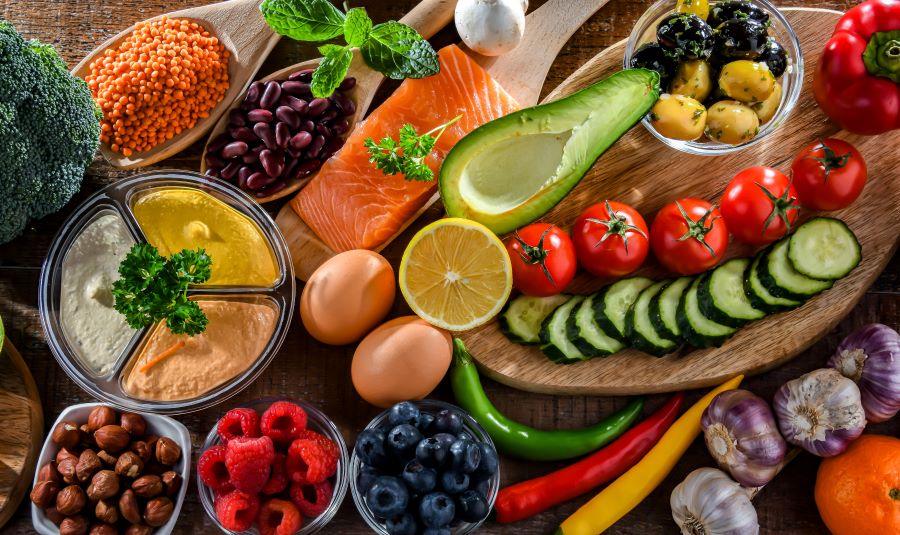Natural Foods That May Help Keep Your Arteries Clear
Certain foods are being studied for their role in supporting clear arteries and overall cardiovascular well being. Discover how natural ingredients like berries, leafy greens, and healthy fats may support your heart, circulation, and long-term wellness.

Foods That Support Artery Health and Blood Flow
The foods we eat play a significant role in arterial health. Several natural options contain compounds that may help maintain flexible, clear arteries. Berries, particularly blueberries, strawberries, and blackberries, are rich in anthocyanins and other antioxidants that help reduce inflammation and prevent oxidative damage to arteries. Studies indicate that regular berry consumption is associated with improved vascular function and reduced risk of cardiovascular events.
Fatty fish like salmon, mackerel, and sardines deliver omega-3 fatty acids that help reduce inflammation, decrease triglycerides, and improve HDL (good) cholesterol levels. The American Heart Association recommends eating fish at least twice weekly to support cardiovascular health. These healthy fats help maintain arterial elasticity and may slow the progression of atherosclerosis—the hardening and narrowing of arteries due to plaque buildup.
Nuts and seeds, particularly walnuts, flaxseeds, and chia seeds, offer plant-based omega-3s, fiber, and other heart-healthy compounds. A handful of nuts daily has been linked to improved cholesterol profiles and reduced inflammation markers. The combination of healthy fats, plant sterols, and fiber in these foods contributes to their artery-protective effects.
Natural Ways to Care for Your Heart Through Diet
Beyond specific foods, certain dietary patterns show promise for arterial health. The Mediterranean diet, rich in olive oil, whole grains, fruits, vegetables, and moderate amounts of lean protein, has demonstrated significant benefits for cardiovascular health in numerous studies. The polyphenols in extra virgin olive oil, a cornerstone of this diet, help protect blood vessels from inflammatory damage and oxidative stress.
Herbs and spices offer concentrated sources of beneficial compounds. Turmeric contains curcumin, which has powerful anti-inflammatory and antioxidant properties. Garlic has been studied for its potential to reduce blood pressure, improve cholesterol levels, and slow arterial plaque formation. Adding these flavorful ingredients to your meals not only enhances taste but may also support your arterial health.
Leafy greens deserve special mention for their nitrate content, which the body converts to nitric oxide—a molecule that helps blood vessels dilate and improves blood flow. Spinach, kale, arugula, and other leafy vegetables also provide vital nutrients like potassium and vitamin K that support heart function and healthy blood pressure. Aim for at least one serving daily to maximize their cardiovascular benefits.
Lifestyle and Diet Choices That Support Long-Term Heart Health
While individual foods matter, consistent dietary patterns and lifestyle choices have the greatest impact on arterial health. A plant-forward eating approach rich in colorful fruits and vegetables provides diverse phytonutrients that combat oxidative stress and inflammation—two key contributors to arterial damage. Aiming for 7-9 servings of produce daily creates a strong foundation for arterial wellness.
Limiting processed foods, refined carbohydrates, and foods high in saturated and trans fats is equally important. These items can contribute to inflammation, elevated blood lipids, and insulin resistance, all of which negatively affect arterial health. Instead, focus on whole, minimally processed foods whenever possible.
Hydration also plays an underappreciated role in cardiovascular health. Adequate water intake helps maintain proper blood viscosity and circulation. Some research suggests that green tea may provide additional benefits through its catechin content, which has been linked to improved endothelial function and lower LDL cholesterol oxidation.
What to Eat to Support Healthy Arteries Naturally
Creating a daily eating plan that incorporates artery-friendly foods doesn’t need to be complicated. Start your day with oatmeal topped with berries and ground flaxseed for a fiber-rich breakfast that helps manage cholesterol levels. Steel-cut or rolled oats contain beta-glucan, a soluble fiber that binds to cholesterol in the digestive tract and helps remove it from the body.
For lunch and dinner, build meals around colorful vegetables, lean proteins like beans or fish, and healthy fats from avocados, nuts, or olive oil. Legumes—including beans, lentils, and chickpeas—provide excellent protein while delivering soluble fiber that helps manage cholesterol levels and blood sugar, both important factors in arterial health.
Dark chocolate with at least 70% cocoa content offers flavanols that support endothelial function—the inner lining of blood vessels. When enjoyed in moderation (about one ounce daily), high-quality dark chocolate may contribute to better blood flow and arterial flexibility while satisfying sweet cravings in a heart-healthier way.
The combination of these natural foods, alongside regular physical activity, stress management, adequate sleep, and avoiding smoking, creates a comprehensive approach to arterial health that works synergistically to keep blood vessels clear and functioning optimally over time. Remember that consistency matters more than perfection—incorporating these foods most days will likely provide more benefit than occasional extreme dietary changes.
This article is for informational purposes only and should not be considered medical advice. Please consult a qualified healthcare professional for personalized guidance and treatment.




